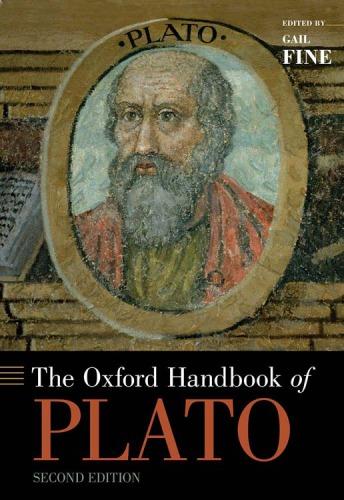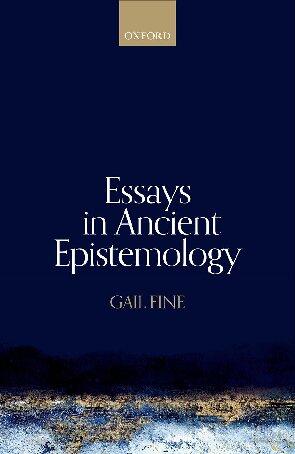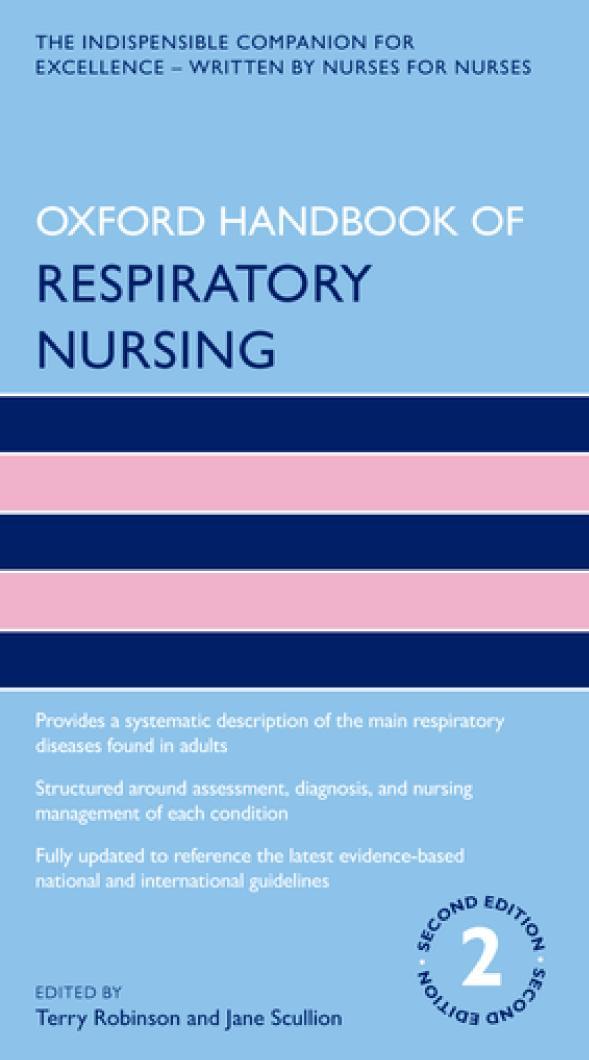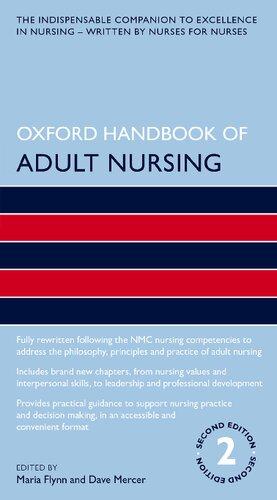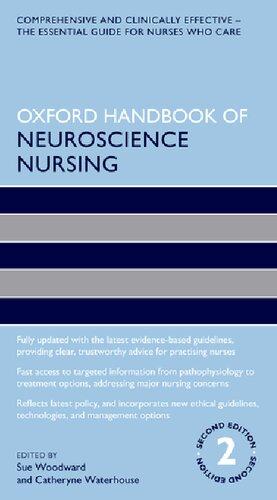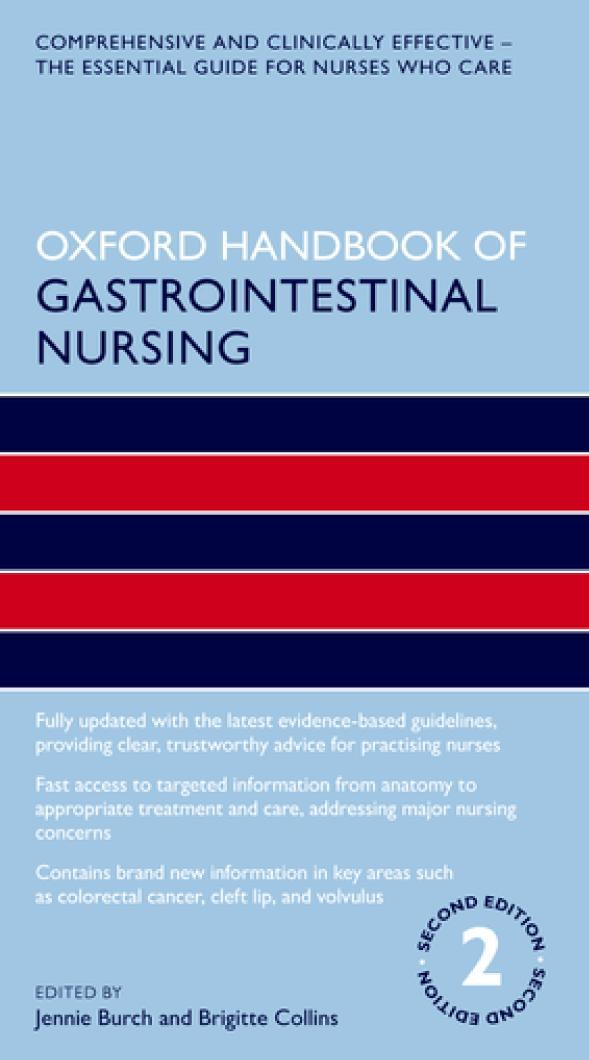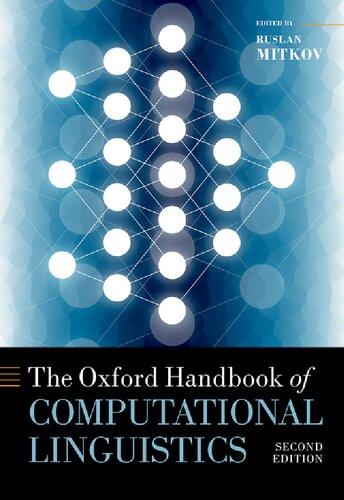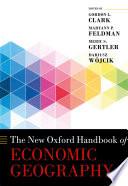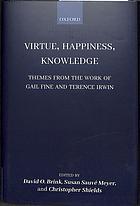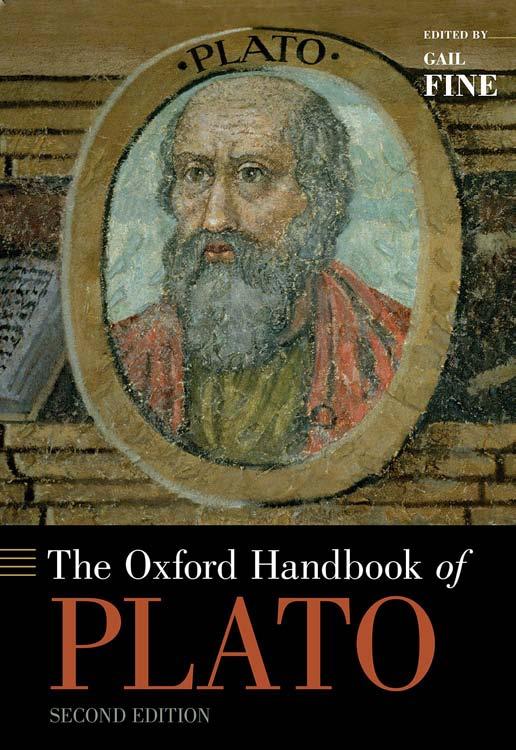Preface to the Second Edition
This second edition of the Oxford Handbook of Plato differs in two main ways from the first edition. First, six leading scholars of ancient philosophy have contributed entirely new chapters: Hugh Benson on the Apology, Crito, and Euthyphro; James Warren on the Protagoras and Gorgias; Lindsay Judson on the Meno; Luca Castagnoli on the Phaedo; Susan Sauvé Meyer on the Laws; and David Sedley on Plato’s theology. The second edition therefore covers both dialogues and topics in more depth than the first edition did. Second, most of the original chapters have been revised and updated, some in small, others in large, ways. The Introduction has been revised to reflect these changes from the first edition. The Bibliography has also been updated.
I am grateful to Peter Ohlin for inviting me to do a second edition. I also grateful to all the authors for their contributions and their collegiality. Thanks too to Peter Osorio for help with the indexes.
12.
Thomas Kjeller Johansen
13.
Lesley Brown
14.
Constance C. Meinwald
15.
Susan Sauvé
16.
Gareth B. Matthews
17.
Daniel Devereux 18.
Paolo Crivelli
Hendrik Lorenz
Christopher Bobonich
25.
Rachana Kamtekar 26.
David Sedley
Contributors
Julia Annas is Regents Professor of Philosophy at the University of Arizona. Her many books include Aristotle’s Metaphysics M and N (Clarendon, 1976), An Introduction to Plato’s Republic (Clarendon, 1981; 2nd ed., 1984), The Morality of Happiness (Clarendon, 1993), Platonic Ethics Old and New (Cornell University Press, 1999), A Very Short Introduction to Plato (Oxford University Press, 2003), and Virtue and Law in Plato and Beyond (Oxford University Press, 2017).
Hugh H. Benson is Emeritus George Lynn Cross Research Professor, Samuel Roberts Noble Presidential Professor, and former Chair of the Department of Philosophy at the University of Oklahoma. He is the editor of Essays on the Philosophy of Socrates (Oxford University Press, 1992) and Blackwell Companion to Plato (Blackwell, 2006), and the author of Socratic Wisdom (Oxford University Press, 2000), Clitophon’s Challenge (Oxford University Press, 2015), and various articles on the philosophy of Socrates, Plato, and Aristotle.
Christopher Bobonich is C.I. Lewis Professor of Philosophy at Stanford University. He is the author of Plato’s Utopia Recast: His Later Ethics and Politics (Clarendon, 2002), as well as of various articles in ancient ethics, political philosophy, and psychology. He is also co-editor (with Pierre Destrée) of Akrasia in Greek Philosophy: From Socrates to Plotinus (Brill, 2007), and editor of Plato’s Laws: A Critical Guide (Cambridge University Press, 2010) and of The Cambridge Companion to Ancient Ethics (Cambridge University Press, 2017).
Charles Brittain is Susan Linn Sage Professor of Philosophy and Humane Letters at Cornell University. He is the author of Philo of Larissa (Clarendon, 2001) and Cicero: On Academic Scepticism (Hackett, 2006); co-translator (with Tad Brennan) of Simplicius: On Epictetus’ Handbook (Duckworth, 2002); and co-editor (with Rachel Barney and Tad Brennan) of Plato and the Divided Self (Cambridge University Press, 2012).
Lesley Brown is Fellow in Philosophy Emeritus at Somerville College, Oxford. She has published several articles on Plato’s Sophist, as well as papers on ancient philosophy of language and on moral and political philosophy in Plato and Aristotle.
Luca Castagnoli is Associate Professor of Ancient Greek Philosophy in the University of Oxford and Stavros Niarchos Foundation Clarendon Fellow at Oriel College. He is the author of Ancient Self-Refutation (Cambridge University Press, 2010) and of a number of articles on ancient philosophy, especially logic and epistemology.
Paolo Crivelli (MA, University of Florence; Perfezionamento (PhD), Scuola Normale Superiore of Pisa) is Ordinary Professor at the University of Geneva. He has also been a lecturer and senior lecturer at the University of Edinburgh, and a Tutorial Fellow at New College, Oxford. He is the author of Aristotle on Truth (Cambridge University Press, 2004), of Plato’s Account of Falsehood. A Study of the Sophist (Cambridge University Press, 2012), and of many articles in ancient philosophy.
Daniel Devereux is Emeritus Professor of Philosophy at the University of Virginia. He has published many articles on Plato and Aristotle, especially on their ethics and metaphysics.
Gail Fine is Professor of Philosophy Emerita at Cornell University, Senior Research Fellow at Merton College, Oxford, and Visiting Professor of Ancient Philosophy at the University of Oxford. She is the author of On Ideas: Aristotle’s Criticism of Plato’s Theory of Forms (Clarendon, 1993), Plato on Knowledge and Forms: Selected Essays (Clarendon, 2003), and The Possibility of Inquiry: Meno’s Paradox from Socrates to Sextus (Oxford University Press, 2014), and the editor of Plato 1: Metaphysics and Epistemology and of Plato 2: Ethics, Politics, Religion, and the Soul (Oxford University Press, 1999), both in the Oxford Readings in Philosophy series.
Verity Harte is George A. Saden Professor of Philosophy and Classics at Yale University. She is the author of Plato on Parts and Wholes: the Metaphysics of Structure (Clarendon, 2002) and of the various articles on ancient philosophy. She is also co-editor (with MM McCabe, Robert W. Sharples and Anne Sheppard) of Aristotle and the Stoics Reading Plato (BICS, 2010); (with Melissa Lane) of Politeia in Greek and Roman Philosophy (Cambridge University Press, 2013); and (with Raphael Woolf) of Rereading Ancient Philosophy: Old Chestnuts and Sacred Cows (Cambridge University Press, 2017).
T. H. Irwin is Professor of Ancient Philosophy Emeritus in the University of Oxford and an Emeritus Fellow of Keble College. From 1975 to 2006 he taught at Cornell University. His many books include Plato’s Moral Theory: The Early and Middle Dialogues (Clarendon, 1977), Plato’s Gorgias (translation and notes) (Clarendon, 1979); Aristotle’s First Principles (Clarendon, 1988); Classical Thought (Oxford University Press, 1989); Aristotle’s Nicomachean Ethics (translation and notes) (Hackett, 1999); Plato’s Ethics (Oxford University Press, 1995); and The Development of Ethics, 3 vols. (Oxford University Press, 2007–2009).
Thomas K. Johansen is Professor of Philosophy at the University of Oslo. He previously taught at the University of Oxford, the University of Edinburgh, and Bristol University. He is the author of Aristotle on the Sense-Organs (Cambridge University Press, 1998), Plato’s Natural Philosophy: A Study of the Timaeus-Critias (Cambridge University Press, 2004), and Powers of Aristotle’s Soul (Oxford University Press, 2012).
Lindsay Judson is Associate Professor of Philosophy in the University of Oxford and an Official Student of Christ Church. He is the General Editor of the Clarendon Aristotle Series and of the Oxford Aristotle Studies. He is the author of Aristotle: Metaphysics Λ:
A Translation and Commentary (Clarendon, 2018), the editor of Aristotle’s Physics: A Collection of Essays (Clarendon, 1991), and the co-editor (with Vassilis Karasmanis) of Remembering Socrates: Philosophical Essays (Clarendon, 2006). He is currently working on a book on Plato’s Euthyphro.
Rachana Kamtekar is Professor of Philosophy and Classics at Cornell University. She works in ancient philosophy and moral psychology. Her book Plato’s Moral Psychology: Intellectualism, the Divided Soul, and the Desire for Good was published by Oxford in 2017. She is currently working on a project on human agency and cause from Aristotle to Alexander.
Richard Kraut is Charles and Emma Morrison Professor in the Humanities at Northwestern University. His many books include Socrates and the State (Princeton University Press, 1984), Aristotle on the Human Good (Princeton University Press, 1989), Aristotle Politics Books VII and VIII, translation with commentary (Clarendon, 1997), Aristotle: Political Philosophy (Oxford University Press, 2002), What Is Good and Why: The Ethics of Well-Being (Harvard University Press, 2007), and Against Absolute Goodness (Oxford University Press, 2011). He also edited The Cambridge Companion to Plato (Cambridge University Press, 1992), Critical Essays on Plato’s Republic (Rowman & Littlefield, 1997), and The Blackwell Guide to Aristotle’s Nicomachean Ethics (Blackwell, 2006).
Mi-Kyoung Lee is Associate Professor of Philosophy at the University of Colorado at Boulder. She is the author of Epistemology after Protagoras: Responses to Relativism in Plato, Aristotle, and Democritus (Oxford University Press, 2005), and the editor of Strategies of Argument: Essays in Ancient Ethics, Epistemology, and Logic (Oxford University Press, 2014).
Hendrik Lorenz is Professor of Philosophy at Princeton University. He is the author of The Brute Within: Appetitive Desire in Plato and Aristotle (Clarendon, 2006) and of several articles on Plato and Aristotle.
Gareth B. Matthews was Professor of Philosophy at the University of Massachusetts at Amherst from 1969 to 2005, and Professor of Philosophy Emeritus at the University of Massachusetts at Amherst from 2005 until his death in 2011. He previously taught at the University of Virginia and the University of Minnesota. He is the author of Thought’s Ego: Augustine and Descartes (Blackwell, 1992), Socratic Perplexity and the Nature of Philosophy (Oxford University Press, 1999), and Augustine (Wiley, 2005).
Mary Margaret Mccabe is Professor of Ancient Philosophy Emerita at King’s College London. She is the author of Plato’s Individuals (Princeton University Press, 1994), Plato and His Predecessors: The Dramatisation of Reason (Cambridge University Press, 1996) and Platonic Conversations (Oxford University Press, 2015). She is co-editor (with C. Gill) of Form and Argument in Late Plato (Oxford University Press, 1996) and (with Verity Harte, Robert W. Sharples, and Anne Sheppard) of Aristotle and the Stoics Reading Plato (BICS, 2010). She is also the general editor of the series Cambridge Studies in the Dialogues of Plato.
Constance C. Meinwald is Professor of Philosophy at the University of Illinois at Chicago. She is the author of Plato’s Parmenides (Oxford University Press, 1991) and of Plato (Routledge, 2016), as well as of a number of articles on ancient philosophy.
Susan Sauvé Meyer is Professor of Philosophy at the University of Pennsylvania. Educated at the University of Toronto (BA 1982) and Cornell University (PhD 1987), she taught at Harvard University before joining the faculty at the University of Pennsylvania in 1994. She is the author of Aristotle on Moral Responsibility (Oxford University Press, 1993; reissued in 2011), Ancient Ethics (Routledge, 2008), and Plato: Laws 1 and 2 in the Clarendon Plato Series (2015). She is currently an editor of the journal Archiv für Geschichte der Philosophie.
Sandra Peterson is retired from her position as Professor of Philosophy at the University of Minnesota, Twin Cities. She is the author of Socrates and Philosophy in the Dialogues of Plato (Cambridge University Press, 2011) and of several articles on ancient philosophy. Her essay on the Parmenides for this volume is her seventh essay on that dialogue.
Malcolm Schofield is Emeritus Professor of Ancient Philosophy in the University of Cambridge, where he taught in the Classics Faculty for close on 40 years. He is a Fellow of St John’s, and a Fellow of the British Academy. He has worked in many areas of the subject, mostly over the last two or three decades on ancient political philosophy, where with Christopher Rowe he co-edited The Cambridge History of Greek and Roman Political Thought (Cambridge University Press, 2000). He is the author of Plato: Political Philosophy (Oxford University Press, 2006). He is currently working on Cicero’s political philosophy.
Dominic Scott is Professor of Philosophy at the University of Oxford and a fellow of Lady Margaret Hall. He previously taught at Cambridge University and the University of Virginia. He is the author of Recollection and Experience: Plato’s Theory of Learning and Its Successors (Cambridge University Press, 1995), Plato’s Meno (Cambridge University Press, 2006), and Levels of Argument: A Comparative Study of Plato’s Republic and Aristotle’s Nicomachean Ethics (Oxford University Press, 2015), and the editor of Maieusis: Essays in Honour of Myles Burnyeat (Oxford University Press, 2007) and of The Pseudo-Platonic Seventh Letter, by Myles Burnyeat and Michael Frede (Oxford University Press, 2015).
David Sedley (born 1947; BA Trinity College Oxford, 1969; PhD University College London, 1974) taught 1975 to 2014 at the University of Cambridge, where he was Laurence Professor of Ancient Philosophy from 2000 and remains a Fellow of Christ’s College. He has edited The Classical Quarterly (1986–1992) and Oxford Studies in Ancient Philosophy (1998–2007). His books include Plato’s Cratylus (Cambridge University Press, 2003), The Midwife of Platonism: Text and Subtext in Plato’s Theaetetus (Oxford University Press, 2004), and Creationism and Its Critics in Antiquity (University of California Press, 2007).
Christopher Shields is Shuster Professor of Philosophy at the University of Notre Dame, and an Honorary Research Fellow of Lady Margaret Hall, University of Oxford. He is the author of Order in Multiplicity: Homonymy in the Philosophy of Aristotle (Oxford University Press, 1999); Classical Philosophy: A Contemporary Introduction (Routledge, 2003); Aristotle (Routledge, 2007); Ancient Philosophy: A Contemporary Introduction (Routledge, 2011); with Robert Pasnau, The Philosophy of Thomas Aquinas (Westview, 2003; 2nd rev. ed. Oxford University Press, 2015); and Aristotle’s De Anima, Translated with Introduction and Commentary (Oxford University Press, 2016). He is the editor of The Blackwell Guide to Ancient Philosophy (Blackwell, 2002), The Oxford Handbook of Aristotle (Oxford University Press, 2012), and general editor (with Becko Copenhaver) of the six-volume The History of the Philosophy of Mind (Routledge, 2018).
C. C. W. Taylor is Emeritus Professor of Philosophy in the University of Oxford and an Emeritus Fellow of Corpus Christi College. He is the author of Plato, Protagoras, translated with notes (Clarendon, 1976, 2nd ed. 1991); The Greeks on Pleasure (with J. C. B. Gosling) (Clarendon, 1982); Socrates (Oxford University Press, 1998); The Atomists: Leucippus and Democritus: Fragments, a text and translation with a commentary (University of Toronto Press, 1999); Aristotle, Nicomachean Ethics II–IV, translated with commentary (Clarendon, 2006), and Pleasure, Mind and Soul Selected Papers in Ancient Philosophy (Oxford University Press, 2008). His translation of S. Luria’s edition of the fragments and testimonia of Democritus is available online at https://oxford. academia.edu/ChristopherTaylor.
James Warren is Professor of Ancient Philosophy at the University of Cambridge and a Fellow of Corpus Christi College. He is the author of Epicurus and Democritean Ethics: An Archaeology of Ataraxia (Cambridge University Press, 2002), Facing Death: Epicurus and His Critics (Oxford University Press, 2004), Presocratics (Routledge, 2007), The Pleasures of Reason in Plato, Aristotle, and the Hellenistic Hedonists (Cambridge University Press, 2014), the editor of The Cambridge Companion to Epicureanism (Cambridge University Press, 2009, and the co-editor (with Frisbee Sheffield) of The Routledge Companion to Ancient Philosophy (Routledge, 2014).
3. Apology, Crito, Euthyphro
In chapter 5, Benson discusses the Apology, Crito, and Euthyphro. These three dialogues are generally thought to be among Plato’s earliest. They are linked both chronologically and dramatically. In the Euthyphro, Socrates is on his way to trial for impiety and corrupting the young; the Apology describes his trial and conviction; the Crito describes one of his days in prison after he was convicted.8 (The Phaedo describes his last day and his death. Despite the dramatic continuity, the Phaedo is usually thought to be from Plato’s middle period.)
As is well known, Socrates often disclaims knowledge. For example, at Apology 21d he says that “neither of us knows (eidenai) anything fine and good (kalon kagathon).” However, sometimes he claims to have knowledge, including, it seems, knowledge of what’s fine and good. For example, at Apology 29b he says: “I know (oida), however, that it is wicked and shameful to do wrong, to disobey one’s superior, be he man or god.” Socrates’ account of his cognitive condition therefore seems to be inconsistent.
There are alternatives to the view that he is inconsistent: for example, that he is insincere (or ironical) in denying that he has knowledge; that he claims to know in one sense of the term but not in another; that he claims to have one kind of knowledge but to lack another kind of knowledge, in a single sense of the term; that he thinks he knows some things but
7 See also Castagnoli, who emphasizes how tentative Socrates often is in the Phaedo.
8 The fact that these three dialogues have this dramatic order doesn’t imply that they were written in that order. For a dating of the dialogues based on the dramatic events they depict, see D. Nails, The People of Plato (Indianapolis: Hackett, 2002).
not others, in a single sense of the term.9 On one version of the last of these views, he takes himself to know some particular truths, including some moral truths, but thinks he lacks knowledge of what, for example, virtue is: he can’t provide satisfactory answers to his characteristic “What is F?” question (the nature of which is discussed below).
As against this, however, it has been argued that Socrates accepts the Priority of Knowledge of a Definition (PKD), according to which one cannot know anything about F unless one knows what F is.10 If he accepts PKD in the Apology, he can’t consistently maintain there both that he knows some particular moral truths and also that he doesn’t know what virtue is. In chapter 16, however, Matthews argues that Socrates is not committed to PKD in the early dialogues. If Matthews is right (a matter about which there’s dispute), Socrates’ failure to know what virtue is doesn’t imply that he doesn’t know any particular moral truths.
Benson and Taylor favor a different view, according to which Socrates recognizes two kinds of knowledge: high- and low-level (Benson), or expert and non-expert (Taylor); Socrates disclaims the first sort of knowledge but takes himself to have some of the second sort of knowledge. But, Benson argues, though this solution allows us to accommodate many of Socrates’ otherwise seemingly contradictory avowals and disavowals, it doesn’t clearly accommodate all of them. Be that as it may, and contrary to what is sometimes said, Socrates at least isn’t committed to the claim that he knows that he knows nothing, where that amounts to a contradiction. Either he knows, in a low-level way, that he lacks all high-level knowledge; or else he is aware, in a way that falls short of knowing, that he lacks high-level knowledge.
Despite claiming to lack knowledge, Socrates claims to have “human wisdom” (Ap. 20d6-e3). This too has been understood in various ways. On one view, his human wisdom consists in his not thinking he knows something when he doesn’t (Ap. 21d2–8; 29a5–b5).
The Euthyphro is a classic “elenctic” dialogue: Socrates cross-examines (elenchein) an interlocutor in an effort to find an answer to a “What is F?” question (in this case, what is the pious, or the holy: to hosion). A satisfactory answer will specify not only necessary and sufficient conditions for something’s being F but also the form (eidos, 6d11; idea, 6e1, 4) of F, which is that by which all F things are F; it is the essence of F-ness, what F-ness really is.11 Various answers are considered and then rejected. For example, at one point
9 For one classic discussion, see G. Vlastos, “Socrates’ Disavowal of Knowledge,” Philosophical Quarterly 35 (1985), 1–31, reprinted in Fine (ed.), Plato 1, ch. 2. I give my own account in “Does Socrates Claim to Know That He Knows Nothing?”, Oxford Studies in Ancient Philosophy 35 (2008), 49–88.
10 Some think PKD is less extensive than it is on my formulation. On one view, for example, Plato requires knowledge of a definition of F, not for having any other knowledge about F at all, but only for knowing about difficult cases. It’s important to be clear that the relevant sort of definition, whatever it is needed for, is a real rather than a nominal definition: it explains what F-ness really is, not our conventional understanding of F-ness or the ordinary meaning of the term “F.” This explains why Socrates thinks it is so difficult to acquire knowledge of what F is: though every competent speaker of a language grasps nominal definitions, they don’t all grasp real definitions.
For a detailed discussion of PKD, see H. Benson, “The Priority of Definition and the Socratic Elenchus,” Oxford Studies in Ancient Philosophy 8 (1990), 19–65; a revised version is in Benson, Socratic Wisdom (New York: Oxford University Press, 2000), ch. 6.
11 For discussion of the metaphysics of the early dialogues, see Matthews, chapter 16 of this volume.
Euthyphro suggests that piety is what all the gods love (9e1–3). Socrates doesn’t dispute that being loved by all the gods is necessary and sufficient for being pious. But he argues that “being loved by the gods” is not the correct answer to the question “What is piety?.” For what is pious isn’t pious because the gods love it; rather, the gods love what is pious because it is pious. The fact that the gods love piety therefore doesn’t tell us what piety is and so it doesn’t answer the question “What is piety?” (101–11b5). It is tempting to infer that Socrates also rejects the broader view that moral properties should be defined in theological terms and, more broadly still, that he defends the autonomy of ethics.12
The Euthyphro is just one of many dialogues in which Plato discusses theology (theologia, a term that first occurs in Republic 2). In chapter 26, Sedley explores Plato’s theology, focusing on the Republic, Timaeus, and Laws. He explains that Plato’s commitment is not so much to monotheism as to the essential unity of the gods; and that fundamentally, god, for Plato, is intelligence (nous), which loves imposing order. Sedley explores the Timaeus’ explanation of how god does so. But since god, for Plato, is essentially good, he can’t be the source of evil. How, then, does Plato explain the existence of evil? Sedley also discusses, among other things, the Laws’ argument for the existence of god; and the relation between Plato’s scientific theology and traditional views of the gods.
In attempting to answer “What is F?” questions, Socrates practices what has come to be known as the “elenctic method.” It takes various forms but, in one standard version, an interlocutor proposes an answer to a “What is F?” question (for example, that piety is prosecuting the wrongdoer: Eu. 5d8–6e2); Socrates then cross-examines him by asking about various purported examples (for example, whether there are other cases or kinds of piety: Eu. 6d6–8) and general principles (for example, whether piety is some one thing, the same in all cases: Eu. 5c4–d4; 6d9–e1). Eventually the interlocutor is caught in a contradiction (as Euthyphro is: for he defines piety as prosecuting the wrongdoer, agrees that there are further cases or kinds of piety, and that piety is some one thing, the same in all cases). Then, usually, the interlocutor rejects the definition and tries another one, whereupon the same pattern is generally repeated.13
It’s sometimes thought that Socrates thinks that if one practices this method often enough, one can gain knowledge of what for example piety is. Yet it seems that all the elenchus can do is to uncover contradictions among various propositions, or among a given interlocutor’s beliefs. If an interlocutor has inconsistent beliefs, not all of them can be true; but that doesn’t, by itself, allow us to know which of them is false. Why, then, is one proposition, or belief, generally rejected and the others retained? That would be
12 For this view, see S. Marc Cohen, “Socrates on the Definition of Piety: Euthyphro 10a–11b,” Journal of the History of Philosophy 9 (1971), 1–13; reprinted in G. Vlastos (ed.), The Philosophy of Socrates (Garden City, NY.: Anchor Books, 1971), ch. 8. Discussion of the “Euthyphro problem” has a long history. For some discussion, see T. H. Irwin, “Socrates and Euthyphro: The Argument and Its Revival,” in L. Judson and V. Karasmanis (eds.), Remembering Socrates (Oxford: Clarendon Press, 2006), 58–71.
13 There are variations on this general pattern. For example, in the Laches, when a contradiction is uncovered among an interlocutor’s beliefs, he rejects a purported example (that lions, despite lacking knowledge, are brave) rather than the definition (that bravery is knowledge of what is and is not to be feared): 196e1–197c4. Or again, the Crito practices the elenctic method, not in order to find an answer to a “What is F?” question but in order to decide a practical question (whether Socrates should flee).
justified if they knew that the retained propositions, or beliefs, were true. But given Socrates’ denial of knowledge, it seems unlikely that he knows, or thinks he knows, which of them are true.14 What, then, justifies rejecting a particular proposition, or belief? And how can repeated practice of the method yield knowledge? This is one version of “the problem of the elenchus.”15 It is essentially what Matthews calls the stronger version: how can the elenchus be used to acquire knowledge of what F-ness is, when all it seems capable of doing is to uncover inconsistencies among a given set of propositions, or beliefs?
According to one view, Socrates doesn’t use the elenchus to do more than uncover inconsistencies; hence the problem doesn’t arise. On another view, he thinks we begin with knowledge of examples of things that are F, and we then use the elenchus to acquire knowledge of what F-ness is. This view assumes that Socrates rejects PKD, allowing us to have some knowledge about F-ness even if we don’t know what F-ness is. On yet another view, even if we lack knowledge at the outset, the elenchus can help us acquire it, if we have and rely on enough relevant true beliefs.
In the Crito, the personified Laws explain why Socrates should not flee from prison, though he is urged to do so by his friend Crito and apparently could easily have done so. On one view, the dialogue urges absolute submission to the Laws. Yet Socrates says that one should never act unjustly (48–9). But surely the Laws could require one to do something unjust? Further, in the Apology, Socrates seems to describe cases where he did disobey a law or, at least, an order. One solution is to say that the Laws present a prima facie case for always obeying them—a case that can in principle be overturned, though in his particular case Socrates doesn’t think it should be.
But why does he think this? After all we’ve seen that he disavows knowledge. He doesn’t claim to know what justice is, yet he wants to do the just thing: Is it just for him to flee, or not? He makes the decision to stay, but on what basis, given his lack of knowledge? Benson addresses these questions.
4. Socratic ethics
Socrates takes an answer to the “What is F?” question to be not only of epistemological but also of moral importance. For, in his view, knowledge is necessary for virtue: if one does not know what virtue is, one cannot be a virtuous person.16 Hence failure to answer the “What is F?” question indicates not just an epistemological but also a moral failing.
14 Interlocutors often begin by thinking they know the answer; but they are quickly shown that they lack the knowledge they thought they had.
15 G. Vlastos, “The Socratic Elenchus,” Oxford Studies in Ancient Philosophy 1 (1983), 27–58; reprinted in Fine (ed.), Plato 1, ch. 1.
16 In this section, in speaking of Socrates I mean the Socrates of the early dialogues. For the view that knowledge is necessary for virtue, see, for example, Eu. 15d4–8; La. 196e; Ch. 176a–b; and Ly. 212a1–7. It’s sometimes but not always thought that beginning with the Meno, the view that knowledge is necessary for virtue is rejected in favor of the view that true belief (but not knowledge) is necessary for virtue. See Judson, chapter 7 of this volume.
Socrates is generally thought to hold that knowledge is not only necessary but also sufficient for virtue.17 Indeed, he seems to think that virtue just is knowledge—in particular, knowledge of good and bad.18 This is one of two so-called Socratic paradoxes. The other is that no one does wrong willingly or voluntarily; I discuss it in the following paragraph.
If virtue is good and bad, it seems that anyone who knows what it is good—that is, best overall for oneself—to do will do it (given that the virtuous person acts virtuously).19 Hence anyone who does what is bad must not have known what it was best to do. Indeed, Socrates holds an even stronger view: not only will anyone who knows that it is best to do x, do x; if one even believes that it is best to do x, one will do it. This is the second Socratic paradox: that no one does wrong willingly or voluntarily. There is, then, no such thing as akrasia (incontinence or weakness of will): no such thing, that is, as knowing, or believing, that it is better to do x than y, but doing y instead.20 Yet it is often assumed that there is such a phenomenon. Socrates therefore owes us an explanation of his denial of its possibility. He offers one in the Protagoras, a dialogue discussed by both Warren and Devereux.21 Before considering it, it will be helpful to lay some groundwork.
Let us say that a rational desire is good-dependent: it is a desire one has because one believes it is in one’s best overall interest to pursue a given course of action.22 What is best for one overall is to be eudaimon, which is conventionally translated into English as “happy.” This translation is liable to mislead, since to a modern ear it suggests feeling pleased or content, whereas eudaimonia is doing well (eu prattein). Eudaimonia is a property of a life, not something fleeting; the eudaimon life is the best life possible for a human being, whatever that turns out to be.
Socrates assumes that a rational desire is one that ultimately aim at one’s own happiness. Since he thinks that all desires ultimately aim at one’s own happiness, he thinks that all desires are rational. Because he takes all desires to be rational, and so to aim at one’s
17 See, for example, La. 192c2–d11, where Laches suggests that courage is wise endurance; but the reference to endurance then drops out, though the view that courage is wisdom is retained. Claiming that knowledge is sufficient for virtue makes it sound as though Socrates thinks that a purely cognitive condition can be action guiding, contrary to a common view according to which desire is also necessary for action. However, in the Protagoras (358c–d; cf. Eud. 278e) Socrates says that it is “not in human nature” to choose what one thinks is bad rather than what is good. Hence his view is that knowledge is sufficient for virtue given the basic human desire to secure what is good (sc. for oneself). In what follows, I take this point for granted.
18 See, for example, La. 199d–e.
19 Or, at any rate, she will try to do the virtuous thing. But she might be prevented from doing so by factors beyond her control.
20 This is just one way of characterizing akrasia. I shall not here distinguish between knowledge and belief akrasia. For discussion of how Socrates might distinguish them, see Devereux, chapter 17 of this volume.
21 See also Lorenz’s discussion in chapter 21 of this volume. It’s worth noting that, though Socrates argues against the possibility of this phenomenon in the Protagoras, he doesn’t there use the term akrasia. He asks, instead, whether someone can be “overcome by pleasure” (352e6–353a1).
22 The term “good-dependent” (like the term “good-independent,” used later on in this chapter in connection with the division of the soul in the Republic) is due to T. H. Irwin, Plato’s Moral Theory (Oxford: Clarendon Press, 1977), 192.
own happiness, he—like virtually all Greek moral philosophers—is a eudaimonist. 23 Devereux discusses the eudaimonist framework of the early dialogues, and Annas discusses it as it figures in Plato’s dialogues more generally.
Here it is useful to distinguish between rational and psychological eudaimonism. 24 According to rational eudaimonism, happiness provides the only ultimate justifying reason for doing something: it is the ultimate answer to the question, “Why is x worth pursuing?.” According to psychological eudaimonism, happiness is the only ultimate explanatory reason for doing something: it is the ultimate answer to the question, “Why did you do x?.” The early dialogues assume both sorts of eudaimonism. They assume, that is, not only that it is rational for me to do something only to the extent that it contributes to my happiness but also that whatever I do, I do because I believe it will most contribute to my happiness.
It follows from psychological eudaimonism that no one ever acts against what he believes it is best for him to do.25 This is sometimes called the prudential version of the second Socratic paradox. There is also a moral version, according to which no one ever does moral wrong willingly.26 This version is secured if we add Socrates’ beliefs that (1) acting unjustly or immorally is bad for the agent, and (2) we only want what is good for us. It follows from (1) and (2) that if we act unjustly or immorally, we do not want to act that way, and we therefore do so unwillingly or involuntarily (see Gorgias 509e).27
Though Socrates takes psychological eudaimonism to be a fundamental fact about us, he doesn’t just leave it there. Rather, he argues that akrasia is impossible. Hence, his own alternative (that no one does wrong willingly) is either implied or at least rendered more plausible. In the Protagoras, the argument against akrasia assumes hedonism, the view that the good—that is, happiness—is the same as pleasure (353c–354e); it also assumes that we always choose what we take to be the maximum amount of pleasure. If the good consists in pleasure, and if we always choose what we think will yield the good—which, according to the sort of hedonism at issue here, is the maximum amount of pleasure— then, in choosing y over x, we must believe that y will yield more pleasure than x. But in a case of akrasia, we choose what we take to be less good, though more pleasant. So, in this alleged case of akrasia, we must think x is better than y. But then, given that the good just
23 The Cyrenaics may be an exception. Further, as we shall see later on in this chapter, it’s sometimes thought that the Republic is not altogether eudaimonist. Though ancient moral philosophers generally agree that eudaimonia is in some sense the ultimate end, they disagree about how to achieve it and about what it consists in.
24 For this terminology, see T. H. Irwin, Plato’s Ethics (Oxford: Oxford University Press, 1995), sect. 36.
25 We’ve seen that Socrates takes virtue to be knowledge of good and bad. We can now say, more exactly, that it is knowledge of what is good and bad for oneself. Since everyone most desires what is good for oneself, this makes it clear why anyone who knows what it is best (for oneself overall) to do, will (try to) do it.
26 For the distinction between the prudential and moral versions of the second Socratic paradox, see G. Santas, Socrates: Philosophy in Plato’s Early Dialogues (London: Routledge and Kegan Paul, 1979), 183–94.
27 The highly controversial assumption that it is in one’s best overall interest to be just is defended in detail in the Republic.
is pleasure, it’s as though we chose y over x, thinking y more pleasant than x, but also thinking x more pleasant than y. This seems to involve inconsistent beliefs: we think both that y is more pleasant than x and that x is more pleasant than y. We can avoid this unpalatable result if we assume that, if we choose y over x, it isn’t because of akrasia but because of a mistaken belief about what would yield the most pleasure. The phenomenon that some describe as akrasia therefore really just involves false beliefs (e.g., 358c1–5): there is a purely cognitive failure, not weakness of the will.
The argument against the possibility of akrasia is open to objection. There is also dispute about whether, in the Protagoras, Socrates accepts the hedonism that his argument against akrasia rests on, or whether the argument is purely ad hominem.28
We saw above that the moral version of the second Socratic paradox assumes that what is best for one is being morally virtuous. More strongly, Socrates thinks that virtue is sufficient for happiness. This, too, is a highly controversial claim, one Socrates defends in the Euthydemus, where he argues that x is either a part of, or necessary for, happiness if and only if virtue secures it.
The claim that virtue is sufficient for happiness has been understood in two different ways. On one view, it means that virtue, all by itself, is sufficient for happiness. On another, weaker, view, it means that virtue is sufficient for happiness only given a sufficient (modest) amount of certain other goods, such as health. Annas argues that both views sit side by side throughout the corpus, without ever being clearly distinguished from one another.29
Suppose, however, that virtue is literally sufficient for happiness. We can then ask whether virtue is sufficient for happiness by being its sole component or by being an infallible means to it. An analogy will illustrate the difference between these two views. Milk, flour, and eggs are parts of, ingredients in, a cake; going to the store to buy these ingredients is an instrumental means of making the cake, but it is not part of the cake.
It is sometimes thought that the fact that Socrates takes virtue to be a craft (technê, also translated as “skill” or “art”) supports the instrumental view: just as shoemaking is a craft with the distinct product of shoes, so virtue is a craft with the distinct product of happiness. But it has been argued that not all crafts have distinct products; music and dance have been thought to be counterexamples. If this is right, then the mere fact that Socrates takes virtue to be a craft does not imply that he takes it to be merely an instrumental means to happiness. We need to know what sort of craft he takes it to be: one that has, or lacks, an independent product. Devereux discusses this issue.
28 For the view that Socrates accepts hedonism in the Protagoras, see C. C. W. Taylor, Plato’s Protagoras, 2nd ed. (Oxford: Clarendon Press, 1991), 162–70; Irwin, Plato’s Moral Theory, ch. 4, and Plato’s Ethics, ch. 6. Annas doesn’t think Plato is committed to it. Warren remains neutral.
29 On the second, weaker, view, virtue is not literally sufficient for happiness (even given human nature); rather, it is just especially important to securing happiness. Hence it is better to call the second view an alternative to the sufficiency thesis rather than a version of it. For the view that virtue is sufficient for happiness only given a sufficient (modest) amount of other goods such as health, see G. Vlastos, “Happiness and Virtue in Socrates’ Moral Theory,” in his Socrates, Ironist and Moral Philosopher (Ithaca, NY: Cornell University Press, 1991), 200–32; and in Fine (ed.), Plato 2, ch. 4. For the view that virtue is literally sufficient for happiness (given human nature), see Irwin, Plato’s Moral Theory, esp. ch. 3, and Plato’s Ethics, esp. chs. 3–4.
If virtue is the sole component of happiness, we have an account of what Socrates takes happiness to consist in. If, however, virtue is merely an instrumental means to happiness, we still lack such an account. If he endorses the hedonism described in the Protagoras, that would provide such an account; but, as we have seen, it is disputed whether he endorses it there. Whether or not he endorses hedonism in the Protagoras, he firmly rejects it by the time of the Gorgias as well as in subsequent dialogues, where he argues that, though some pleasures—the good ones—are part of the happy life, happiness does not consist just in pleasure.30
5. Meno
In chapter 7 Judson discusses the Meno, 31 a dialogue that is often thought to begin a new phase in Plato’s thought: the early dialogues are primarily devoted to ethical questions; though the Meno (like most of Plato’s dialogues) also discusses such questions, it devotes more attention than earlier dialogues do to questions in epistemology and metaphysics. It also explicitly addresses, and provides an answer to, the problem of the elenchus (discussed in Section 3 of this chapter), an answer that goes beyond anything to be found in earlier dialogues.
The dialogue opens with Meno asking Socrates’ whether virtue can be taught. It is not entirely clear what Socrates’ answer to this question is. For, as Judson explains, later in the dialogue Socrates argues both that virtue is teachable and that it isn’t (87c1–96b10), and there’s dispute about which of these arguments (or conclusions) he favors.32
But, Socrates says at the outset of the dialogue, unless one knows what virtue is, one can’t know whether it is teachable or, indeed, anything at all about it (71a4–b8). This is an instance of PKD, which we discussed in Section 3 of this chapter, in connection with the early dialogues. Socrates claims not to know what virtue is, yet knowing what it is, is prior to all other knowledge of virtue; hence they spend some time asking what it is. Though Meno initially thinks he knows the answer, it emerges that he doesn’t; hence he doesn’t know anything at all about virtue. How, then, can he inquire into it? This leads Meno to formulate “Meno’s paradox” (80d5–8), which Socrates then reformulates (80e1–5).
30 There is dispute about whether the version of hedonism described in the Protagoras is the same as the version(s) rejected in other dialogues. For discussion, see Annas; and J. C. B. Gosling and C. C. W. Taylor, The Greeks on Pleasure (Oxford: Clarendon Press, 1982).
31 The Meno is also discussed by Matthews, chapter 16 and Taylor, chapter 18 of this volume.
32 Though he presumably thinks that virtue either is, or isn’t, teachable (and so accepts the conclusion of one of his arguments), he could reject both arguments. (Alternatively, one might argue that in the Meno, he suspends judgment either way.) The question of whether virtue is teachable is also discussed in the Prot.
Meno is sometimes thought to raise two problems: the problem of inquiry and the problem of discovery.33 The first asks how, if one lacks knowledge, one can begin an inquiry; the second asks how, if one lacks knowledge, one can complete an inquiry. Socrates reformulates Meno’s questions into a constructive dilemma: whether one knows or doesn’t know, one can’t inquire. There’s dispute about the precise connection between Meno’s questions and Socrates’ reformulation. There’s also dispute about how Socrates replies to Meno’s questions and to his own reformulation of them.
Socrates’ reply is in three stages. In the first stage he describes the theory of recollection, according to which we had prenatal knowledge, and what’s called learning is really recollection of that knowledge. When Meno professes not to understand, Socrates says he’ll explain. He does so in the second stage. Here he cross-examines a slave about a geometry problem whose answer the slave doesn’t know either at the beginning or at the end of their discussion. He begins with a false belief about the answer (though he has some related true beliefs). He eventually acquires a true belief about the answer. Socrates says that the slave still doesn’t know the answer (85c2), though he could come to know it if he were questioned further (85c10–d1). In the third stage Socrates reiterates the theory of recollection.34
How should we understand Socrates’ reply? On one view, favored by Matthews and Taylor, it distinguishes latent innate knowledge from manifest knowledge. We all have the former but lack the latter; inquiry consists in making our latent innate knowledge manifest.
It is clear that the theory of recollection posits prenatal knowledge (knowledge we had before birth), but that doesn’t imply that we have innate knowledge (knowledge we have when we are born). For one might lose one’s prenatal knowledge on being born, in such a way that one no longer knows and so lacks innate knowledge.35 And, on one view, Plato thinks we are born without any knowledge. Nonetheless, we eventually acquire true beliefs; and by relying on relevant true beliefs, along with our tendency to favor truths over falsehoods, we are able to acquire knowledge. That’s the point of the discussion with the slave, who, as we’ve seen, eventually acquires a true belief about the answer to a geometry problem, even though he doesn’t yet know it (nor does he have other relevant
33 For this view, see D. Scott, Plato’s Meno (Cambridge: Cambridge University Press, 2006), part 2; and his Recollection and Experience (Cambridge: Cambridge University Press, 1995), 24–52. I discuss my own view of the Meno in “Inquiry in the Meno,” in R. Kraut (ed.), Cambridge Companion to Plato (Cambridge: Cambridge University Press, 1992), 220–26, reprinted, with minor modifications, in my Plato on Forms and Knowledge: Selected Essays (Oxford: Clarendon Press, 2003), ch. 2; and in The Possibility of Inquiry (Oxford: Oxford University Press, 2014), part I.
34 There’s dispute about whether recollection is described in exactly the same way in the first and third stages.
35 The Meno doesn’t explicitly say that we lose our prenatal knowledge when we are born, but the Phaedo does so. In chapter 8, Castagnoli distinguishes different ways of losing something, and he argues that the way in which Plato thinks we lose knowledge when we are born is compatible with our still having knowledge in a way; see also Scott, Plato’s Meno and Recollection and Experience. However, neither in the Meno nor in the Phaedo does Plato explicitly say this, though in both dialogues he does explicitly say that we lack knowledge.
knowledge), though he can come to know it. This is the true-belief response, according to which Plato argues that one doesn’t need any prior knowledge (in this life) in order to inquire or discover; having and relying on relevant true beliefs will do.36
Judson argues against this view and in favor of the view that what’s crucial, and suggested by the passages on recollection, is our ability to recognize the correct answer when we find it. Since recognition implies prior knowledge, we already know in a way; but insofar as inquiry involves articulating the answer (which we can’t always do), we don’t already know.37
The true-belief and recognitional responses are alternative solutions not just to Meno’s paradox, but also to the problem of the elenchus, which, as we saw in Section 3, asks (among other things) how we can acquire knowledge when we don’t already have it. According to the true-belief response, our reliance on relevant true beliefs, coupled with our tendency to favor truths over falsehoods, enables us to acquire yet further true beliefs that we can eventually convert into knowledge (when, for example, we can interrelate a sufficient number of true beliefs into an explanatory whole). According to the recognitional response, even if we in some sense lack knowledge now, we had it once; when we come upon the right answer, we’ll recognize it as such and thereby know it.
However that may be, Plato undoubtedly distinguishes knowledge from true belief: he does so in saying that the slave has true belief but not knowledge. Then, at 97a, he distinguishes someone who knows the way to Larisa from someone who has a mere true belief about it. Hence Plato allows us to have knowledge and beliefs about at least some of the same things: knowledge and belief aren’t individuated by their distinct objects. He also countenances empirical knowledge.38
How exactly do knowledge and true belief differ? Plato doesn’t provide an explicit account of true belief or of belief. But at 98a he says that knowledge is true belief tied down with reasoning about the explanation (aitias logismos). One can know that p is so only if one knows why p is so; all knowledge requires an account of the reason why what one knows is true. There’s dispute about whether this is a version of a justified-truebelief account of knowledge. It isn’t if, according to such an account, any old justification is sufficient for turning a true belief into knowledge. For Plato thinks knowledge requires, not just any old justification for believing that p is true, but an explanation of why p is true. However, if one takes the justified-true-belief account of knowledge to say that, to know that p, p must be true, one must believe that p is true, and one must have a justification
36 However, as we’ve seen, the theory of recollection posits prenatal knowledge. Why does Plato do so, according to the true-belief response? Perhaps he thinks that our tendency to favor truths over falsehoods can be explained only in terms of prior knowledge. Since we don’t have the relevant prior knowledge in this life, we must have had it prenatally. Though we lose this knowledge at birth, we retain the tendency it conferred.
37 Judson remains neutral on the question of whether this prior knowledge is innate.
38 This assumes that he mentions the way to Larisa as a literal example of something one might know. However, it is sometimes thought that he mentions it only as an analogy, designed to explain how knowledge differs from true belief. Nor is it clear exactly how he distinguishes knowing from having a mere true belief about the way to Larisa. See Judson, chapter 7 and Taylor, chapter 18 in this volume for discussion.
